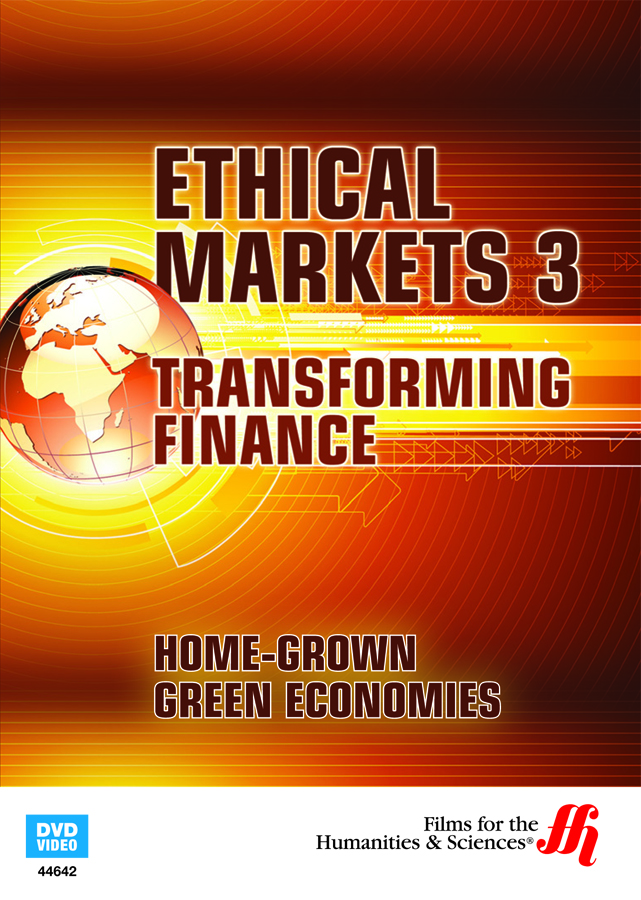Homegrown Green Economies: Ethical Markets 3 (Enhanced DVD)
Product Description:
Hazel Henderson discusses the bailout of the banks, the false premises of trickle-down economics, and the dangers of computer stock trading and other trading markets, including the phenomena known as flash trading.
When Hazel speaks with Stuart Valentine, President of Progressive Asset Management, about the need for change, Stuart tells her that he thinks the youth culture will grow the green economy and this will come out of the social networking phenomena.
According to Stuart Valentine, investing in the green economy provides a triple bottom line solution as an eco-friendly model when compared to the single bottom line approaches that lead to the BP oil spill. Any profitable attempts must consider the environmental and people costs. Stuart says, “Behind the meter” systems, like wind turbines, are one of the solutions.
In Fairfield Iowa, there is a Go Green Plan where individuals, businesses, and community leaders work together in dedicated efforts for the sustainability of the community. These projects gain support from local investing initiatives, not from Wall Street. Progressive Asset Management has a 2.0 investment platform to assist these capital-raising efforts.
Hazel talks about local venture capital investment pools. Stuart compares this to the Wall Street mentality. Investing reform comes from the idea that money is not equivalent with wealth. There are many plausible ways to create the green economy with the triple bottom line philosophy, which considers and accounts for the environmental impacts, social needs, and financial desires.
In other words, businesses have the intentional design that balances people, the planet, and profitability. This is the foundation of sustainability, by which all organized entrepreneurial efforts are judged using the Green Transition Scoreboard.
Homegrown Green Economies: Ethical Markets 3
- Enhanced DVD
- ISBN: 978-1-62102-108-7
- Run Time: 29 Minutes
- Copyright Date: 2010
- CC

















